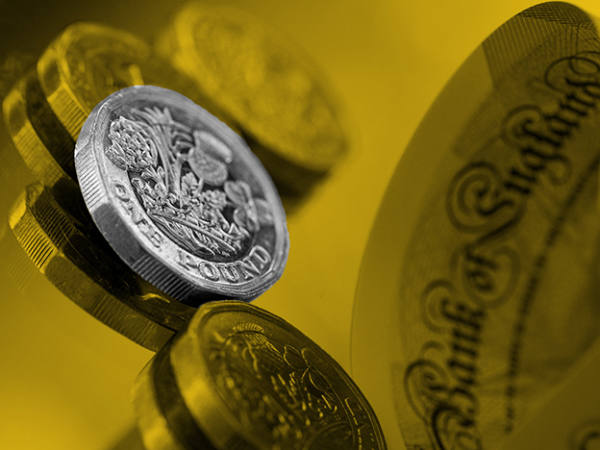People are right to compare tech IPO valuations with the late 1990s, but established tech companies still have lots to offer investors
The recent scramble for tech IPOs has led many to compare today’s goings on with the euphoria and bubble of the late 1990s. There are similarities, but the technology sector in general is not a bubble in my view. While valuations for many established tech companies are high, they are not excessive given their status as innovators and problem solvers for a changing world.
2020 has been a great year for technology shares. The US Nasdaq Composite Index is up 38.6 per cent year to date with the Nasdaq 100 up 42.8 per cent. Some shares such as Tesla (US:TSLA) have seen stunning gains as it has become profitable and defied the short sellers who have bought shares in their masses.
Tesla’s gains can also be explained by a growing enthusiasm for companies associated with in vogue technologies such as electric vehicle batteries. Blink Charging (NASDAQ:BLINK) has seen its share price soar as it has developed new and easier ways for people to charge their electric vehicles.
Biotechnology companies such as Novavax (NASDAQ:NVAX) and those that have anything to do with vaccines have also delivered sensational gains to investors.
Tesla is marginally profitable, while many other hot stocks are not making any money at all and may never do so. The one thing they have in common is that they are story stocks and these are the kind of stocks that speculators – not investors – tend to love.
In many cases, little consideration is given to a company’s business model and whether its products are any good. Whether it will make money and the valuation of the shares are not given a second thought. All that seems to matter is the company’s exposure to a market that is in vogue and that its shares are going up.
The stampede into thematic shares is where things look very similar to the late 1990s. Back then anything that was remotely related to the internet was snapped up by greedy traders looking to make a fast buck. There was also no shortage of investment bankers queuing up to bring these companies to the stock market. In many cases, this ended very badly and thankfully standards have improved since then.
What we were seeing then as we are seeing now is a classic human trait of trying to get rich quickly combined with the fear of missing out. This trend has been strengthened by trading apps such as Robinhood which have allowed people to buy fractions of shares in companies and gain exposure for little money down.
That said, the desire to profit from changing and growing technologies is not irrational. Throughout history, the economy and society have been transformed by things such as steam power, canals, railways, electricity, air travel and the internet. All have endowed some with great riches but also great losses.
As usual, hindsight is very good at revealing the best places to have put your money and what to have avoided. Picking winners in advance is very hard to do. That said, by applying a sound investment process and asking some very simple questions it is possible for most investors to weigh up an initial public offering (IPO) company and its shares.
Taking a look at some recent tech IPOs
You may be able to make a lot of money in a very short period of time by chasing the latest hot IPO stock, but in many cases you will have to engage in dangerous speculation in order to do so.
You have to be confident and lucky enough that you can buy the shares and then sell them on to someone who thinks they can still go up in price. When that belief breaks down - as it always does – and you are left holding the shares that no-one wants to buy then the losses that can be experienced are very painful.
Today’s tech mania is therefore just a form of momentum trading that comes with a very big financial health warning attached to it.
Some recent tech IPOs
Company | Date of IPO | IPO Price $ | Price 14/12/20 $ | Change | Market cap $m | Revenues 2021F $m | EPS 2021F $ | Mkt cap/sales | PE (F) |
Airbnb* | 10/12/20 | 68 | 126 | 86% | 75,470 | 4,805 | -1.14 | 15.7 | -110.8 |
DoorDash | 9/12/20 | 102 | 158 | 55% | 50,127 | 4,165 | 0.36 | 12.0 | 438.3 |
Lyft | 29/3/19 | 72 | 48 | -33% | 15,216 | 3,366 | -1.33 | 4.5 | -36.0 |
Palantir Technologies | 30/9/20 | 10 | 28 | 178% | 52,256 | 1,412 | 0.12 | 37.0 | 231.3 |
Snowflake | 16/9/20 | 120 | 333 | 178% | 94,346 | 1,092 | -0.86 | 86.4 | -387.3 |
Uber Technologies | 10/5/19 | 45 | 53 | 17% | 93,012 | 17,847 | -0.7 | 5.2 | -75.3 |
Zoom Video Communications | 17/4/19 | 36 | 388 | 977% | 110,855 | 2,568 | 2.9 | 43.2 | 133.7 |
C3.ai* | 10/12/20 | 42 | 102 | 144% | 9,800 | 156.7 | -0.73 | 62.5 | -140.3 |
*Historic revenues and EPS |
Source: FactSet, SharePad, Investors Chronicle
We can see that some recent prominent tech IPOs have delivered some very impressive gains for their shareholders. Yet many of them are still loss making and expected to continue to be so. None of these shares can be seen to be attractively valued on any traditional yardsticks.
I’ve included market capitalisation to sales in the valuation table (enterprise value to sales is also often used and takes into account the debt used to create sales) as some people like to use it as a benchmark to value companies with no profits.
I can also accept the view that sales are more difficult – but not impossible – to fudge, but I don’t really feel that the ratio tells me much without some kind of idea as to what profit margins a business can make. This is not an easy question to answer for many tech IPOs.
Yet for those who have more confidence in this yardstick, the multiple of sales for many is quite high. A low multiple of sales on companies such as Uber and Lyft does not necessarily mean they are cheap if they can’t ultimately make meaningful and sustainable profits.
What we can see is that the market values of many of these companies are already substantial and indicate that they have been priced as long-term winners. But how does an investor work out whether this is reasonable or not?
Kicking the tyres on technology shares
The approach to looking at a technology company is no different to looking at any other business. It’s important not to be bamboozled by the tech label attached to a company. Quite often you will find that you are looking at a company that has been doing what established companies in its industry have been doing for years but through a website or mobile app. This means that business economics are very similar if not quite the same.
There is always a risk that an investor can get bogged down when researching a company but I find that having a simple set of questions to answer is the best way of getting the most out of the process fairly quickly:
- Do you understand what the company does? If not, then move on.
- Why is the company listing its shares on the stock exchange? Is it raising money to invest in its business or is it just a way for existing shareholders to sell out?
- What problem is it trying to solve/what need is it providing for?
- What is the growth opportunity?
- What does it do that others cannot or what does it do better?
- How much competition does the business face? How easy is it for new companies to enter the market?
- Can you value the shares? Does the valuation stack up?
Airbnb
Airbnb is an internet platform that connects people offering places to stay ranging from a private room in a house, to entire homes, luxury villas, treehouses and even igloos with people who want to stay in them.
It had its first guests in 2007 and as of September 2020 had 4m hosts listing 7.4m places to stay around the world. Between 2015 and 2019 it grew its annual bookings from 72.4m with an overall value of $8bn to 326.9m with a value of $38bn. Covid has hit the business hard in 2020 and bookings are down significantly.
The company makes money by taking booking fees from the resident and the host. In 2019, its revenues accounted for 12.6 per cent of the total value of bookings. This is known as the take rate.
Airbnb is already a well known and established brand. Platform businesses can have very attractive levels of profitability as they are leveraging the website and marketing costs with increased revenues. The company also gets paid cash upfront before the booking has been used which means it has very favorable cash flow characteristics.
Many platforms do well because they exploit their network effects. This means the more people that use the platform, the more valuable it becomes. Not being listed on Airbnb may mean that a host does not get enough bookings to make it worthwhile. They can however, list their properties on other sites such as booking.com and lots of other listing sites. There is also value in repeat users of the website which lower customer acquisition costs.
Despite rapid growth, a well known brand and what looks like an attractive platform based business model, Airbnb has never made an annual profit and may not make one. Since it started out in 2007, it has lost a cumulative $2.1bn and has sunk $2.8bn of capital into its business in the meantime.
The company cites its free-cash-flow generation in its IPO prospectus, but this comes from the fact that it gets paid upfront from its customers and has very large, non cash, share based expenses. Negative working capital is a nice thing to have, but it is a timing issue and not a permanent source of value in my view.
I am sure that Airbnb can keep on growing its bookings, but if you take away the fact it conducts business over the internet, this is a distribution business working in a tough market and finding it hard to make money. The fact that the IPO proceeds of $3.5bn are going largely to selling shareholders suggests that they could be cashing out at an opportune time.
Then there is the valuation which is difficult without meaningful profits. What you can see is that for the current $75.4bn market capitalisation, you could buy the entire share capital of leading -– and usually profitable – hotel operators such as Marriott, InterContinental, Accor and Hyatt Hotels and still have $7.5bn left over which looks a better deal to me.
Hotel market capitalisations
Company | Market cap at 14/12/20 ($bn) |
Marriott International | 41 |
Inter-Continental Hotels | 11.3 |
Accor | 9.3 |
Hyatt Hotels | 7.3 |
Hilton World | 28.6 |
Total | 97.5 |
Source: FactSet
DoorDash
Doordash is also a platform business. It connects restaurants and other shops with customers over the internet and mobile apps and delivers food and goods to them with a local delivery team known as Dashers. The company has 390,000 merchants on its books selling to 18m customers with the help of 1m Dashers.
It is the biggest player in the US restaurant delivery market with half of the market in October 2020. The market for takeaway delivery ordered over the internet has been growing rapidly for years and has been turbocharged by Covid-19 lockdowns.
The company is aiming to create lots of local network effects that create a positive and virtuous circle of growth and opportunity for sellers and Dashers while offering more choice to customers. If it works and the company can leverage its platform and marketing costs then maybe it could be a great success.
It made a very small profit in the second quarter of 2020, but lost $131m in the first nine months of 2020 on revenues of $1.9bn. This was a big improvement on the $479m loss for the same period in 2019. The company is also expected to make a profit for all of 2021.
But is this a business that is really worth $50bn at the time of writing?
While it is operating in a growth market which is consolidating as the likes of Uber and Just Eat buy out competitors it still looks like very hard work to make meaningful profits. The key problem facing all food delivery companies is the cost of delivery. Leveraging those costs is hard when there is lots of competition for delivery drivers.
There is also the concern that customers will go back to restaurants when Covid recedes. Whether it can compete with Amazon (US:AMZN) in delivering other retail goods is also open to question.
It is encouraging to see that the $3.3bn raised in the IPO is going to be invested in the business but I’m not sure why the value of DoorDash’s equity should be more than three times that of Just Eat which has more revenues and makes higher profits whilst being exposed to the same growth drivers.
Established tech companies look a safer bet
Trying to pick the next big winner is very difficult. Nick Train, the successful UK fund manager doesn’t even try to do this and looks to buy shares in the companies he thinks have already won in their markets.
When it comes to investing in tech shares this looks to be a very sensible and safer strategy. The exception to this might be Tesla where the valuation looks ridiculous for what could easily be classed as a car business just as much as a technology one.
Established tech company valuations
Company | Ticker | Price $ | Market Cap $bn | %chg YTD | Revenues $bn | EPS $ | Mkt cap/sales | PE | Earnings yield |
Apple | AAPL | 123 | 2,092 | 67.6 | 320.2 | 4.07 | 6.53 | 30.2 | 3.3% |
Microsoft | MSFT | 214.9 | 1,625 | 36.3 | 167.1 | 7.12 | 9.72 | 30.2 | 3.3% |
Amazon.com | AMZN | 3178 | 1,594 | 72 | 448.1 | 44.65 | 3.56 | 71.2 | 1.4% |
Alphabet | GOOG | 1776 | 1,200 | 33 | 214.8 | 61.6 | 5.59 | 28.8 | 3.5% |
FB | 274.3 | 781 | 33.6 | 104.5 | 10.46 | 7.47 | 26.2 | 3.8% | |
Tesla | TL0D | 524.1 | 497 | 583 | 45.205 | 3.74 | 10.99 | 140.1 | 0.7% |
NVIDIA | NVDA | 528.4 | 327 | 125 | 19.4 | 11.41 | 16.86 | 46.3 | 2.2% |
Adobe | ADBE | 484 | 232 | 46.8 | 15.355 | 11.45 | 15.11 | 42.3 | 2.4% |
Salesforce.com | CRM | 221.2 | 202 | 36 | 25 | 3.62 | 8.08 | 61.1 | 1.6% |
QUALCOMM | QCOM | 144.1 | 163 | 63.4 | 30.657 | 7.31 | 5.32 | 19.7 | 5.1% |
Source: SharePad/FactSet
There is nothing undiscovered about these companies, but this year’s lockdowns have shown how their products and market positions have become vitally important to businesses and their users. Valuations are high, but prospective earnings yields are higher than the yields on bonds and at the moment, in most cases, higher than inflation.
Unlike bonds, these companies still offer investors the prospect of decent and fairly reliable levels of future profit growth which should be able to cope with a modest increase in inflation or inflation expectations. They may not deliver the stellar returns of 2020 going forward, but could still deliver good returns.
UK investors can get exposure to these shares very easily and cheaply by buying a Nasdaq 100 ETF which is available from providers such as iShares, Amundi or Lxyor. A S&P 500 ETF with its high exposure tech is another alternative as is iShares S&P 500 Information Technology Sector UCITS ETF (IE00B3WJKG14).
These shares are not risk free as their market power is coming under closer scrutiny. Facebook is currently the subject of an antitrust lawsuit and these developments need to be watched.











